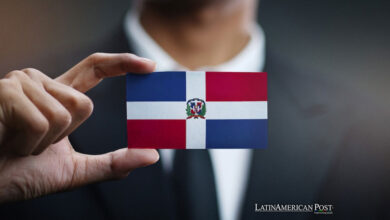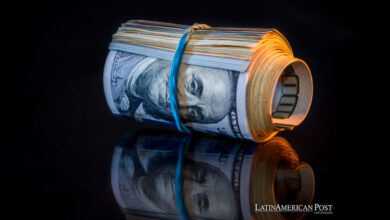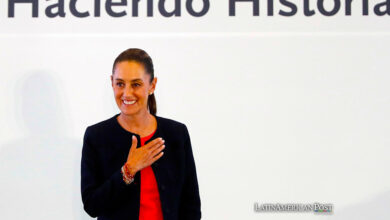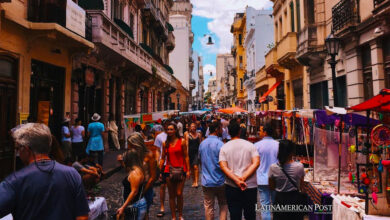Venezuela, With Restrictions to Expand its Economy Even Without Sanctions
Despite the partial lifting of US sanctions on Venezuela, experts maintain that critical domestic issues such as infrastructure, public services, security, and human capital limit the nation's potential for economic expansion, even in a sanctions-free environment.
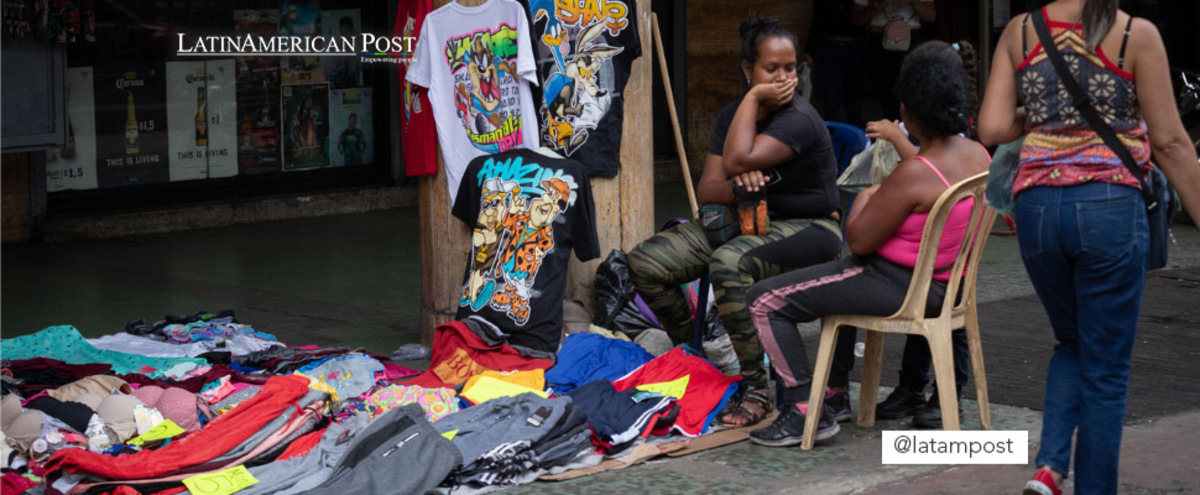
Photo: 02/11/2023.- Informal sellers wait for their customers in Caracas (Venezuela). EFE/ Rayner Peña R
Carlos Seijas Meneses (EFE)
Escucha este artículo
Leer en español: Venezuela, con restricciones para expandir su economía aun sin sanciones
The failures that Venezuela faces in areas such as infrastructure, services, security, and human capital restrict, according to experts, its ability to expand the economy, even in a scenario free of sanctions – to which the Government blames the crisis – of which several were lifted, temporarily and conditionally, by the United States.
Economists agree that the relief granted by Washington in crucial areas, such as oil and gas, does not magically represent an improvement, whose GDP has fallen 67% since 2013, according to the Institute of Economic and Social Research of the Catholic University Andrés Bello (IIES-UCAB).
Economist and university professor Santiago Sosa told EFE that "recovering what was lost" and getting back on "a path of sustained growth " represents "a challenge," which requires designing an action plan to address the failures suffered by the country. as well as "strong investments."
It is expected that the suspension of sanctions announced by the US, in response to the agreement signed between Chavismo and the opposition on electoral guarantees for the 2024 presidential elections, will allow Venezuela to improve its income, the majority obtained through oil. which can now be sold at "market prices" and not with discounts, which the IIES averages at 30%.
A deteriorated infrastructure
Sosa explained that, in these years of crisis, the infrastructure has deteriorated "significantly", especially public services, such as electricity, drinking water and gas, roads, and those that basically affect companies, many of them with obsolete machinery and equipment.
He assured that the reactivation and economic expansion cause an increase in demand for the national electrical system, which currently "is not even capable of supplying the entire country" with this resource in an "uninterrupted" manner.
In addition, there are failures in the road, such as "holes in the roads and problems with unfinished highway projects", which implies "a risk when transporting merchandise."
Given these restrictions, a "strong investment" of resources is needed, mainly destined for replacement and maintenance.
However, the expected additional inflow of income, after the lifting of sanctions, estimated by the academic institute at around 4 billion dollars for next year, "will hardly cover the necessary investment in the short term."
According to the Venezuelan Chamber of Construction (CVC), the infrastructure, with "major deficiencies", requires an "urgent injection of financial resources, over the next two years, with an investment of 10 billion dollars."
Security
Sosa pointed out that the authorities must also address the problem that still exists in terms of security. According to the report from the Venezuelan Observatory of Violence (OVV) corresponding to 2022, there has been a "general increase in extortion activities" against "economic actors or individuals" with "access to dollars or other foreign currencies", which affects, in "a very significant way", to the "trade in imported goods."
The NGO also denounced "robberies and extortion" against "rural producers and transporters." The authorities assure that they do "exhaustive work" to "eradicate criminal organizations."
Recently, two women and a man were arrested in the state of Lara (west) for their alleged connection with a group dedicated to extortion, which demanded $20,000 from the victims to "not attack their physical integrity."
Read also: Venezuela's High Court Suspends Opposition Primary, Casting Shadow Over Democratic Process
Human capital
For the IIES researcher, another restriction is related to human capital, which has been lost due to migration, estimated by international organizations to be around 7.71 million Venezuelans, compared to just over 2.5 million recognized by the Government, including "trained people" in different areas.
The specialist considers that recovering human capital will be possible once the economic situation improves and "sustained growth" generates attractive opportunities and conditions, such as sufficient salaries.
In Venezuela, where the minimum wage is equivalent to $3.7 per month, only 15% of citizens earn more than $300 per month, according to the financial analysis firm Ecoanalítico.
Sosa also sees it necessary to train new human capital, for which investment must be made in education, in order to raise the quality of the educational sector and improve infrastructure, working conditions, and teachers' salaries.
On October 26, President Nicolás Maduro, who compared the scope of the bombings on the Gaza Strip with that of the sanctions on the country, assured that, before these measures, Venezuela had "flows of wealth from the oil income that It was invested in housing, health, education, social security" and "in salaries."
But this, he said, "fell apart" with the "coercive measures", which he asks to be lifted in their entirety.

